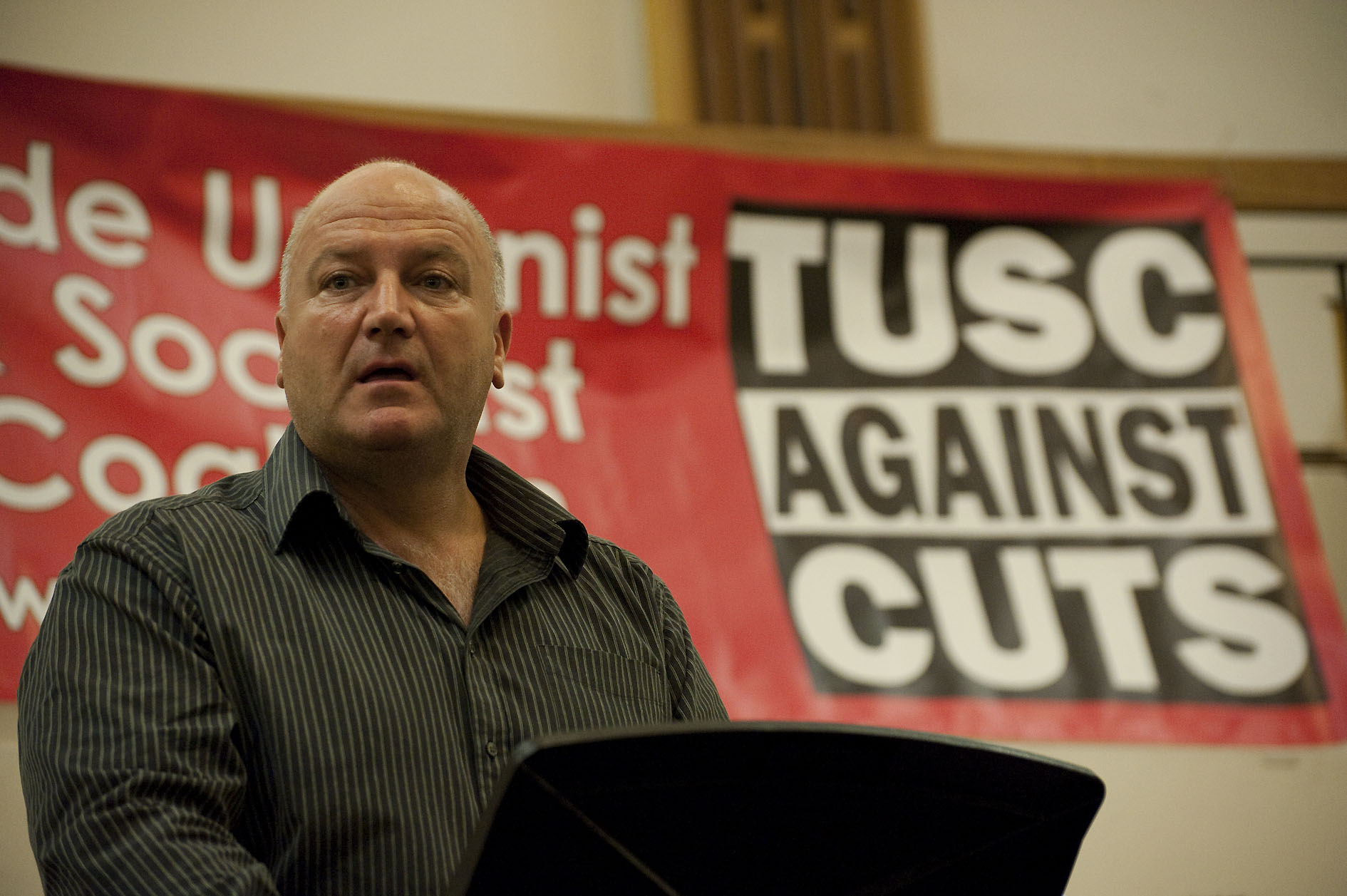Rob Williams
At the left-wing Labour Representation Committee (LRC) fringe meeting at Labour Party conference, Matt Wrack, Fire Brigades Union (FBU) general secretary, spoke of his expectation that in light of Jeremy Corbyn’s victory, the issue of the non-affiliated unions affiliating to Labour is now on the agenda.
Mick Lynch, RMT transport union assistant general secretary, made similar points, but at the Trade Unionist and Socialist Coalition (TUSC) conference, the union’s president Peter Pinkney was clear that the RMT should maintain its policy of supporting TUSC.
Both unions found themselves outside Labour in 2004, a year after the Iraq War, although the RMT was expelled while the FBU disaffiliated.
Background
The RMT was disciplined because five Scottish branches affiliated to the Scottish Socialist Party which was then at a high point of winning six Members of the Scottish Parliament before it subsequently imploded.
It was clear that if such an alternative had existed in the rest of Britain, it would have been attractive to RMT delegates at their special conference in February 2004. Many were repelled by Blairite policies such as rail privatisation and maintenance of Thatcher’s anti-union laws.
The FBU disaffiliated in a special conference as a direct consequence of the national dispute on pay in 2002-03 against Blair’s Labour government who used the army’s Green Goddesses to try and break the strike. The then FBU assistant general secretary told the conference that FBU strikers had been called “criminals, wreckers, fascists and even worse”.
After being expelled, the RMT under Bob Crow became a prime mover in building a political alternative to New Labour. In particular it played a central role in launching the Trade Unionist and Socialist Coalition (TUSC) alongside prominent trade unionists, including some from the FBU, and socialist organisations such as the Socialist Party.
TUSC
TUSC has stood widely in elections over the last five years, with many candidates coming from the unions, including the RMT and FBU.
Actually, this was a major factor in pushing Labour lefts to ensure that the Blairites were challenged in the leadership election by Jeremy Corbyn’s candidature.
In the debate on the executive of Unite the Union, general secretary Len McCluskey admitted that if the union didn’t support Corbyn, there would be a big possibility that the upcoming rules conference would have supported motions for disaffiliation.
As with many members of these unions, even some who have joined Labour as individual members after Jeremy Corbyn’s victory, we believe it is premature to re-affiliate.
Like ourselves, they believe that the left, including in the unions that are at present outside Labour, should not stand aside from this struggle.
We are totally in favour of the non-affiliated unions supporting Jeremy Corbyn and John McDonnell against the Blairites in the same manner that they supported his election campaign.
We support Jeremy and John calling a conference of all the anti-austerity forces inside and outside Labour, including non-affiliated unions and parties like ourselves, to build a movement to defeat the Blairites. The question is, does re-affiliating help that process?
The party machine is still in the hands of the Blairites. The launching of Momentum is a recognition from Corbyn’s supporters that there is a struggle taking place and that the left needs to operate inside and outside the party.
What you get
It is to the current Labour’s undemocratic structure that unions would be re-affiliating, where the constitution has been fashioned by the Blairites to maintain their pro-market policies.
They would be spending hundreds of thousands of pounds for a tiny proportion of votes and influence. On the existing basis, the RMT could have to pay £250,000 to affiliate for around 1.8% of the vote at Labour’s annual conference which doesn’t even decide party policy!
They would also be giving up their independence at this stage where the die hasn’t been cast, rather than use the possibility of supporting anti-austerity candidates against the Labour right as an important lever to supplement the struggle against the Blairites from outside.
We think it would be more productive for these unions to use their resources to directly aid Jeremy Corbyn’s campaign against the right-wing by, for example, financing organisers. A future discussion on re-affiliation must be linked to the right of the unions to organise collectively within Labour, which was finally ended by the Collins review.
Many RMT activists, while supporting Corbyn, would want clarity on his re-nationalisation proposals which would only mean a third of rail franchises returning to public control by 2025. The RMT will also not be joining Labour in campaigning in support of the capitalist EU in the forthcoming referendum.
Councillors
Many FBU members would want to get a commitment that Labour councillors would vote against fire service cuts where they have a deciding influence, such as in Leicestershire at present, where they are lining up with Tories on the cuts.
Members would also want their unions to get commitments on mandatory reselection to root out the pro-austerity MPs and councillors.
It is inevitable that these debates and discussions are taking place. We welcome the space that has been opened up by Jeremy Corbyn’s victory and the potential for a mass movement against Tory austerity and the Trade Union Bill.
But the non-affiliated unions, who have been consistent in their support for the new Labour leader against the right-wing party machine, have a unique position because of their independence. We believe this can assist the movement from outside the current bureaucratised structure of the Labour Party at this stage.









